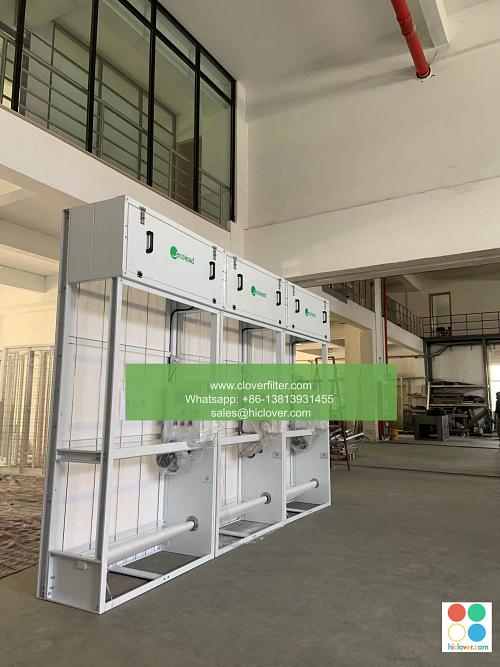Maintaining a Sterile Environment in Oncology Research: Automatic Roll Air Filters

Oncology research requires a sterile environment to prevent contamination and ensure the accuracy of results. One crucial aspect of maintaining this environment is the use of automatic roll air filters, which play a vital role in removing airborne contaminants and particles. In this article, we will discuss the significance of air filtration systems in oncology research laboratories and highlight various application areas where automatic roll air filters can be effectively utilized.
Introduction to Automatic Roll Air Filters
Automatic roll air filters are designed to provide a high-efficiency particulate air (HEPA) filtration system, capable of capturing 99.97% of particles as small as 0.3 microns. These filters are ideal for use in oncology research laboratories, where the presence of airborne contaminants can compromise the integrity of experiments and put researchers at risk. Automatic roll air filters are also suitable for use in hospitals, pharmaceutical manufacturing facilities, and other cleanroom environments where sterility and air quality are of utmost importance.
Applications of Automatic Roll Air Filters in Oncology Research
Automatic roll air filters have a wide range of applications in oncology research, including:
* Cancer cell culture: Automatic roll air filters help maintain a sterile environment for cancer cell culture, preventing contamination and ensuring the accuracy of results.
* Gene therapy: Automatic roll air filters are used to prevent airborne contaminants from interfering with gene therapy experiments, which require a highly controlled environment.
* Immunotherapy: Automatic roll air filters help maintain a sterile environment for immunotherapy research, where the presence of airborne contaminants can compromise the effectiveness of treatments.
* Pharmaceutical development: Automatic roll air filters are used in pharmaceutical manufacturing facilities to ensure the quality and sterility of pharmaceutical products.
Benefits of Automatic Roll Air Filters in Oncology Research
The use of automatic roll air filters in oncology research offers several benefits, including:
* Improved air quality: Automatic roll air filters help remove airborne contaminants and particles, improving the overall air quality in oncology research laboratories.
* Reduced risk of contamination: Automatic roll air filters help prevent contamination of experiments and reduce the risk of airborne contaminants interfering with research.
* Increased efficiency: Automatic roll air filters are designed to provide a high-efficiency particulate air (HEPA) filtration system, making them an efficient solution for maintaining a sterile environment in oncology research laboratories.
* Cost-effective: Automatic roll air filters are a cost-effective solution for maintaining a sterile environment in oncology research laboratories, as they reduce the need for frequent filter replacements and minimize downtime.
Conclusion
In conclusion, automatic roll air filters play a vital role in maintaining a sterile environment in oncology research laboratories. Their ability to remove airborne contaminants and particles makes them an essential component of air filtration systems in oncology research. By highlighting various application areas and benefits of automatic roll air filters, we hope to emphasize the importance of using these filters in oncology research laboratories to ensure the accuracy and reliability of results.

